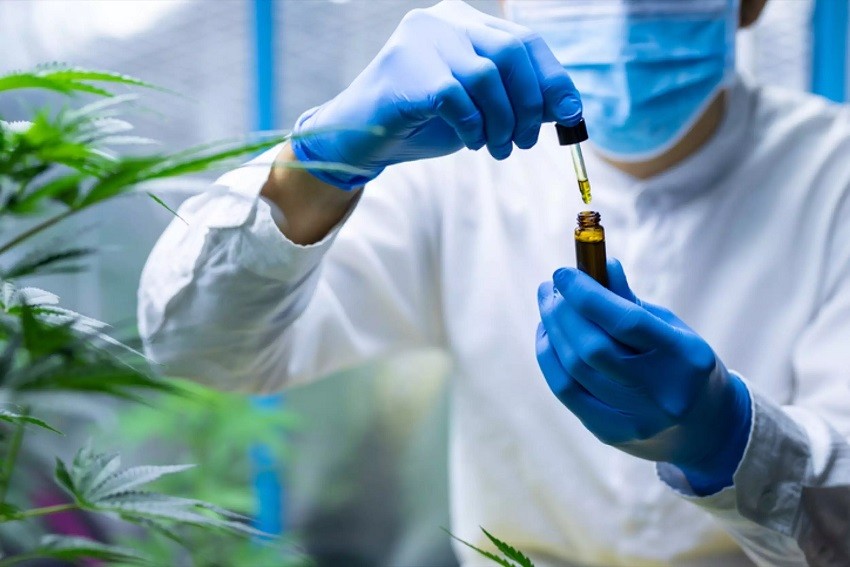Learning
Big Pharma Set to Benefit from DEA’s New Approach to CBD Research

Rumors that the U.S. Drug Enforcement Administration (DEA) was ready to downgrade marijuana’s classification from Schedule I have sadly proven to be just that – rumors. Ultimately, all that the DEA has really looked to do is reduce restrictions on cannabidiol (CBD), a crucial non-psychoactive cannabinoid in marijuana, not the whole plant.
And who stands to benefit from the DEA’s new relaxed stance toward Heady Harvest and CBD vape juice research? None other than Big Pharma.
The rumor started courtesy of Tom Angell and Congressman Earl Blumenauer. Angell’s interpretation of a letter sent to him by Blumenauer was that the FDA and DEA had teamed up to reschedule marijuana at federal level. In fairness, from reading the “DEA is currently reviewing two petitions to reschedule marijuana,” it’s understandable Angell thought this was the case.
Despite the vagueness of the letter, one would have imagined that the author of the Justice Department document Blumenauer had sufficient knowledge of marijuana to make such a statement.
Downgrading marijuana from Schedule I
The marijuana world was delighted with the apparent development, deciding that no matter how small the progress from this would be, to get any budge on cannabis reform from the federal government would be a significant achievement.
Downgrading marijuana from Schedule I would be a crucial step in achieving wider reform concerning medical and recreational use. At least as a Schedule I substance, future changes to marijuana laws in the U.S. are guaranteed to be positive.
At the moment, marijuana is considered as dangerous as heroin and LSD by the federal government as a Schedule I substance. That doesn’t just prevent access to the public, but it also inhibits research on marijuana which could prove the plant has medicinal value.
Reclassifying cannabis as Schedule II would speed up and improve research, allow it to be formally recognized as a substance that has medical uses and help it to become established as a legitimate form of alternative treatment.
Unfortunately, excitement over possible legalization has clouded the judgment of many. After further consultation, it appears that the federal government’s proposed rescheduling would be advantageous to big pharmaceutical companies.
Non-psychoactive CBD cannabinoid
A later DEA press release clarified what was meant by the document Blumenauer had, and it showed him and Angell to be way off the mark. All that the proposed regulatory relaxations involving the Controlled Substances Act would do is allow FDA-approved clinics to carry out trials on the non-psychoactive CBD cannabinoid found in marijuana.
So big companies like GW Pharmaceuticals would be able to get ahead of the game with Calmly CBD medication, click here for more info. Right now, regulations prevent researchers from possessing high quantities of marijuana, meaning studies take far longer than they should as they have to wait for extra cannabis to be approved and delivered.
Therefore contrary to what the DEA may have claimed to be doing, there has been no effort to reschedule marijuana or even CBD in isolated form. But because it isn’t psychoactive, cannot get users high and may have clinical potential, the DEA is prepared to permit research on CBD products in a way they never would THC.
The DEA’s decision has split the marijuana community – some are welcoming it as a fresh approach, but others are more doubtful and even sceptical of it.
Big Pharma delighted
Americans for Safe Access representative Mike Lizewski argues that the DEA’s reform “barely moves the issue forward”. He is also highly critical of the choice to only free up research for CBD, while ignoring THC, other cannabinoids and compounds and the possibility of whole-plant medical marijuana.
Big Pharma is, as expected, delighted by the DEA’s move – financing is never an issue for these companies, and you can be sure they’ll be pouring money into CBD research to get a quasi-monopoly on the market and shut out independent vendors.
Is the movement falling into the hands of Big Pharma a price marijuana advocates are willing to pay for legalization, to any extent? Considering the rapid developments at state level this decade, to give up so easily in Washington by accepting a small change – with the debate then buried for the foreseeable future – seems a poor strategic move.
It’s not known yet whether the DEA and FDA have more plans to tweak the regulation and scheduling of cannabis, although it perhaps doesn’t matter.
We’ve seen already that these two administrations have an anti-THC, Big Pharma approach, and that their focus is on research not distribution. It looks like any real changes in the government’s approach to medical marijuana are a way off yet.

















![Play Online Blackjack In Australia [2024]: Top 10 Online Australian Blackjack Sites 16 Play Online Blackjack in Australia [2024]: Top 10 Online Australian Blackjack Sites](https://www.chiangraitimes.com/wp-content/uploads/2024/03/word-image-303235-1-80x80.jpeg)












